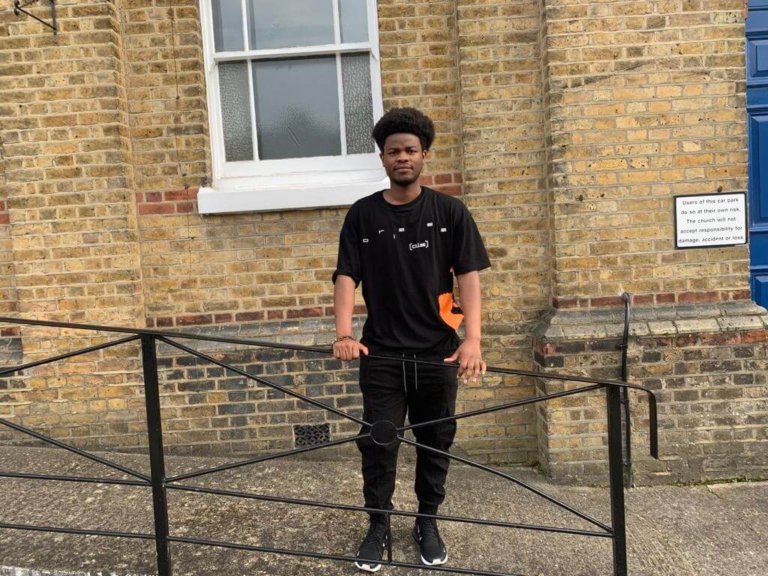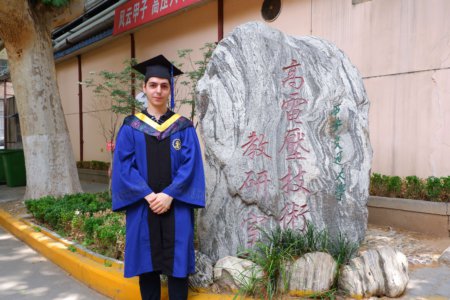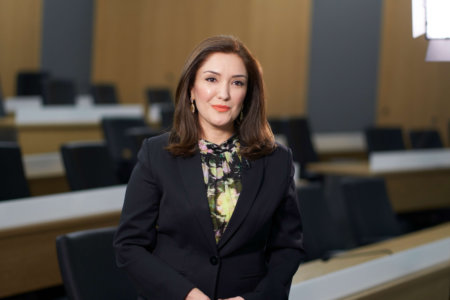
In 2010, Israel Johnson and his family fled to the UK to seek safety from Boko Haram. Since then, with the help of charity organisation Migrant Leaders, Johnson has rebuilt his life and is studying biomedical science at the University of Warwick.
At the young age of 19, he had already worked as a waiter, as well as interned for Bright Network and at Migrant Leaders. Below we speak to this Nigerian student about Migrant Leaders and his life as a biomedical science student at the University of Warwick:
Tell us a bit more about where your interest in biomedical science came from.
My family emigrated to the UK so my siblings and I could have a better future and a big part of that was so we would all be able to get into uni. My parents and I believe that education is a necessary tool for social mobility.
With my mum and two sisters working in the NHS, I’ve always had a passion for science and healthcare. My innate desire to understand how complex systems work has led me to want to understand how human physiology works and how it relates to treating diseases.
I wish to be at the heart of medical breakthroughs in healthcare and I believe studying biomedical science gives me the much needed tools to do so.
Why choose to pursue biomedical science at the University of Warwick?
I chose to study biomedical science at the University of Warwick because they are renowned globally for their commitment to research. They’re also leaders in upholding the highest academic and research standards in regards to biological research.
To further add, they offer courses focusing on the latest research. They provide opportunities to work with respected pharmaceutical and biopharmaceutical companies like AstraZeneca and the NHS.
I hope to go into research and to have a uni so focused on offering its students with the best possible resources and knowledge because this career path is very important to me.
Can you tell us more about your experience at Migrant Leaders? What are some key skills and knowledge you developed from here?
The organisation has helped me in my dream of contributing to the scientific world by contributing to funds for me to go into higher education. They also provided me with a mentor that was perfectly tailored towards my needs.
This was someone who studied biomedical science as well and was instrumental in my UCAS application and placement for uni this year. Migrant Leaders also helped accelerate my personal growth and development with opportunities that I wouldn’t usually have.
I developed presentation skills (through presenting in front of a school assembly) and trained for interviews. It also allowed me the chance to network and engage with individuals that were key in my personal development.

“I chose to study biomedical science at the University of Warwick because they are renowned globally for their commitment to research,” Johnson says. Source: Israel Johnson
What has been your most memorable class at the University of Warwick so far?
This has to be when I dissected a mouse because I’ve always been fascinated with anatomy. I saw firsthand how the different parts of the organism connect together and relate to one another.
It was also one of the few chances I had to be in a lab and gave me insight into what my future would be like.
What fond memories with teachers at your uni do you have that stood out for you? How have the lecturers supported you in your studies thus far?
Unfortunately, due to COVID-19 and the restrictions, I had limited interaction with my lecturers. However, my personal tutor has been a great help in my learning and supported me through a lot of the taught lecture content.
What are the practical learning elements in your course? Do you get to apply them to the real world?
The nature of my course means a lot of my lectures aren’t just limited to the classroom but have real practical applications. Although I was unable to carry out many lab experiments because of COVID-19, I’m eager to finally start this year. This, along with fully utilising the knowledge I have learnt.
Do you have any academic goals?
To achieve a first overall degree and to absorb as much knowledge as I can during my studies.
What plans do you have after graduating? Would you want to pursue further studies or go straight to work?
I hope to work in the pharmaceutical industry, more specifically in the research and development area. I want to be in the forefront of research and develop drugs to alleviate illnesses that plague society.
I also plan on going back into academia and getting a PhD since I want to help contribute to the scientific literature and engage people in stimulating conversations.
Do you have any advice for students abroad on how to manage their finances wisely?
It’s important to keep track of all your spending and add up all of your income. Doing this, then taking out all your essential expenses (weekly food shopping and rent) will be very useful.
There are a number of discounts available to students in stores and online (such as Unidays and Totem in the UK) that you can take advantage of and help with your spending. A railcard is also essential to help you save on transport costs and you can get one through opening a student account with banks like Santander.










